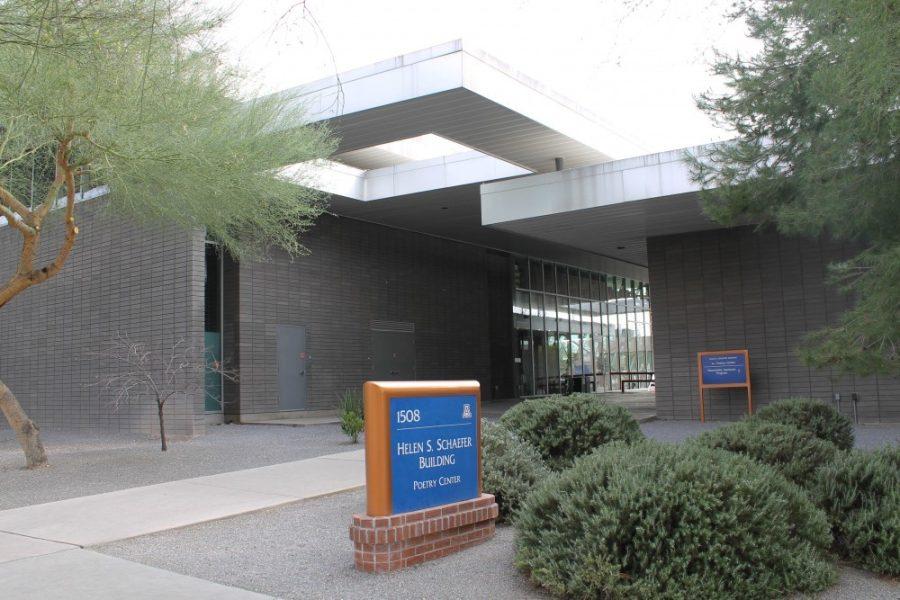The University of Arizona offers a wide variety of ways for students to get more involved within their community and within their majors. One of the College of Humanities’ main attractions, the UA Poetry Center, is often overlooked or forgotten. The state-of-the-art center, located a little off campus, is a valuable resource that more students should engage with.
As a creative writing major, I have had the pleasure of visiting the Poetry Center twice and plan to go much more throughout my college career. The first time, I was given a tour of the space. Inside, it is similar to a public library. There are shelves filled with poetry books and places to sit and read. There is also a children’s section that is redecorated every year to inspire children to get more involved with reading. Local Tucson elementary schools take field trips to the Poetry Center and learn about famous poets and get the opportunity to hear some of their poems, which makes the Poetry Center a great resource for promoting children’s literacy.
The center also features a computer and recording system that allows students to listen to poetry read aloud by the poet themselves, offering a completely new way to interpret the poem.
The Poetry Center also invites authors and poets to come on Thursday nights to read their work to audiences. There is a room used for the reading, but the overflow guests are welcome to sit and stand in the open courtyard between the reading room and the center itself. The open space allows for the audience to engage freely with the author.
I have been to a reading and, even though I sat outside in 50-degree weather, I had a really great experience. My creative nonfiction professor requires my class to attend readings throughout the semester and write about our experience and how hearing the poetry and seeing the author in person changes our perspective on the piece.
Going to a reading with authors I have never heard of and never read before the class is an educational experience. I learn a lot about the author before I even read or hear their work, and I also get a sense of their personality.
I heard Dorothea Lasky read and speak on a panel about her poetry and autobiography and could tell the difference in her professional voice versus her more casual voice. When she read, she sounded composed and rehearsed, and when she spoke, she was relaxed and comfortable. This allows the audience to get a sense of who she is as a person and interpret her work differently because of that. They don’t make assumptions based on what has been written about her on the inside flap of the book.
The reading series put on by the Poetry Center expands the knowledge of the people in attendance but is not talked about frequently enough. The Poetry Center remains something that is underutilized for the most part by students in the College of Humanities and adults living in the Tucson area. Even I would not have known the Poetry Center existed if I was not required to go for my creative writing courses.
This resource is vital to the university and needs more recognition. The readings are free and open to anyone who wants to come. You can arrive and leave whenever you want, and the staff are incredibly talented and passionate about their work.
There are readings most weeks, and the calendar of readers and lecturers can be found on the Poetry Center’s website. This is a valuable resource to the UA’s campus and should be more well known among the students.
Sami Marks is a sophomore majoring in Creative Writing and English.









